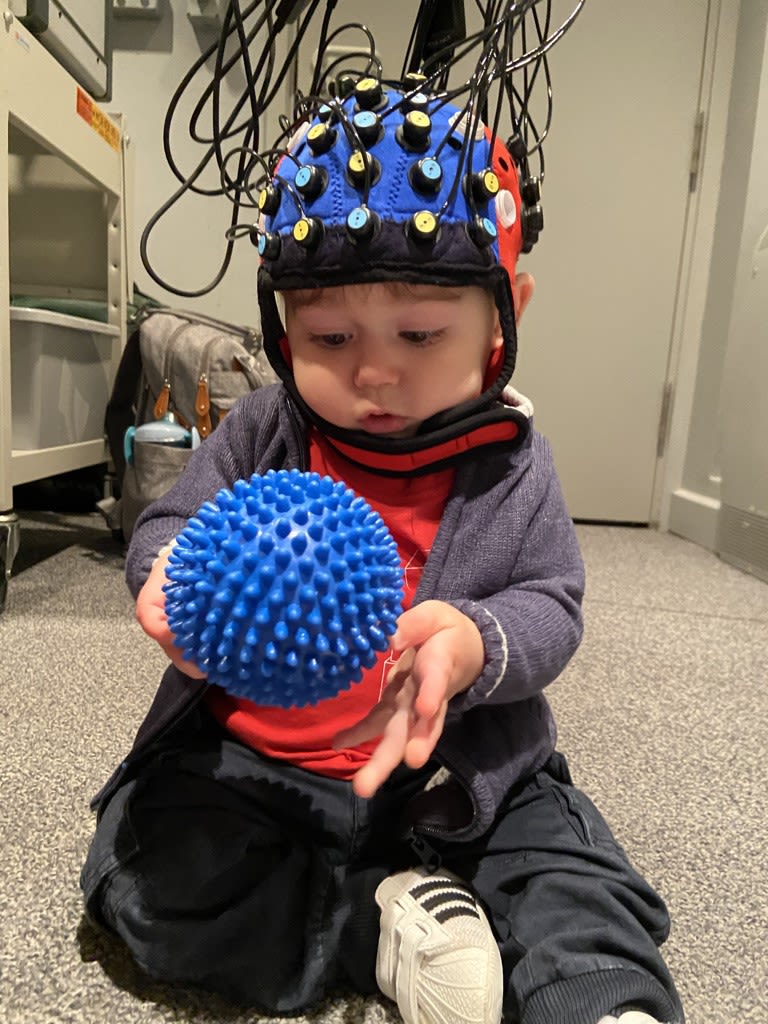
Do you have a child between 3 and 5 years old?
Help us better understand how humans develop empathy by taking part in a new study at Birkbeck's ToddlerLab — our world leading research facility.
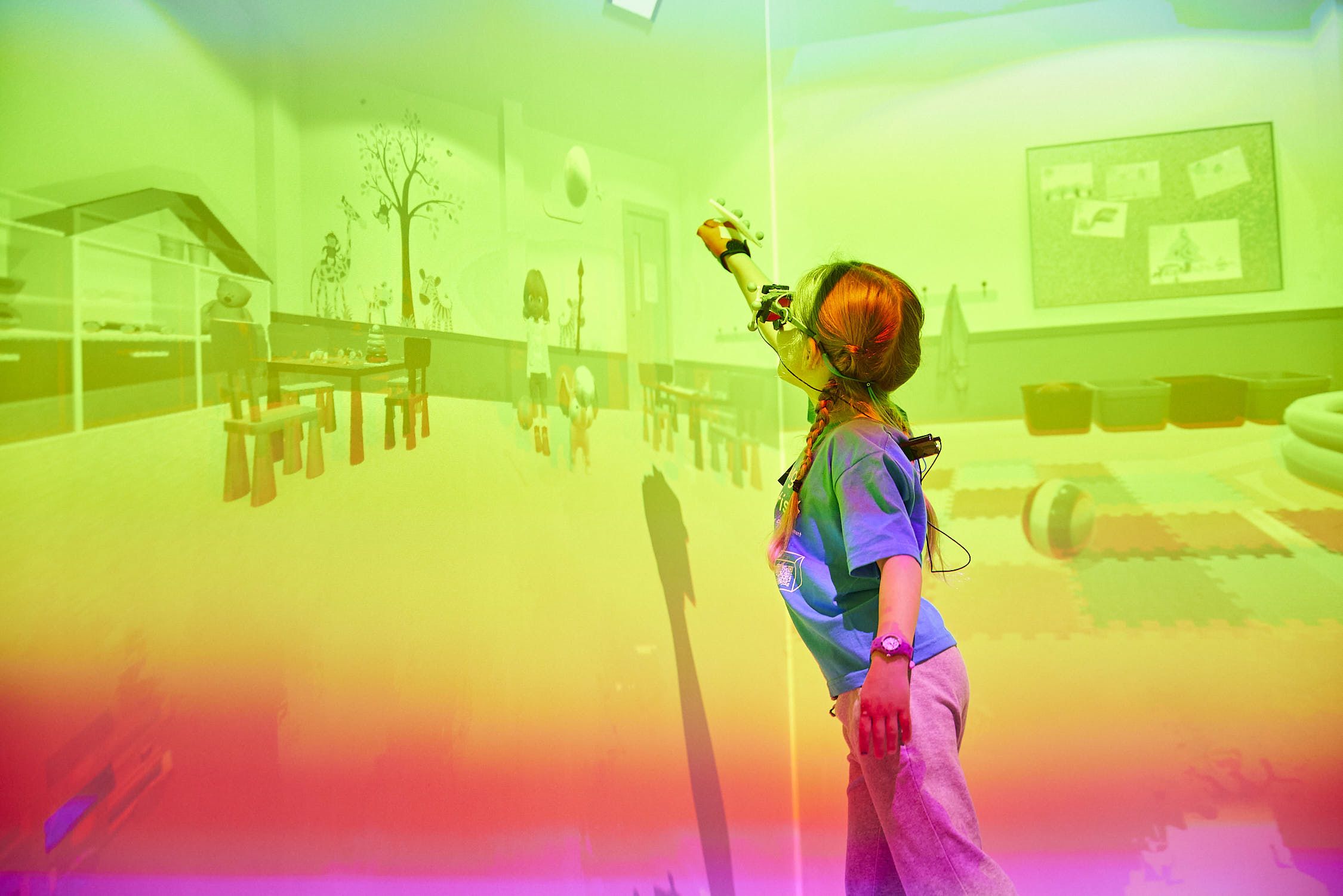
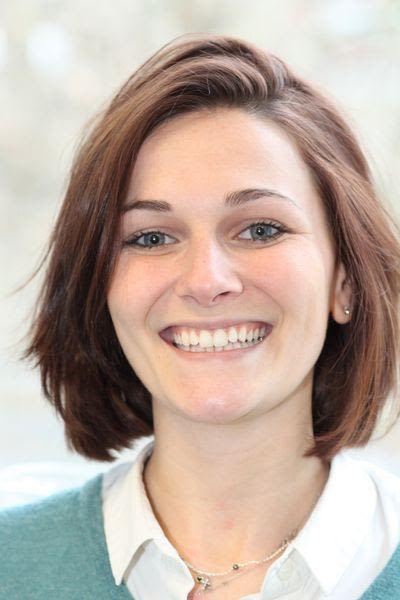
Dr Chiara Bulgarelli, Research Fellow and Lecturer at Birkbeck
Dr Chiara Bulgarelli, Research Fellow and Lecturer at Birkbeck
The Empathy Project
Your child’s best friend has just broken their favourite teddy and starts crying. Your child stares at their friend with a very sad face. Your little one is likely experiencing “empathy” — understanding and sharing someone else’s emotional state. While we know that this skill is fundamental for social interactions, how and when it develops is still unclear. By understanding this better and what factors promote the development of empathy, we can help foster these skills in children who have difficulties in social interactions.
Toddlerhood is a crucial age in which to study empathy. From age two, toddlers are able to understand whether emotions come from themselves or from others. By age three, most toddlers have daily interactions with other peers in nursery or in the playground.
To launch our study into empathy, our research team visited a nursery class to explore how toddlers interact with each other in real life, and how they react when a classmate shows some distress. We found that quite often, toddlers would stare at a classmate when they were crying. We believe this could reflect personal distress but could also be an attempt to understand why the other child cries. To help disentangle what is happening inside a toddlers’ brain in these scenarios, the second stage of our project will be carried out in Birkbeck's ToddlerLab.
The CAVE
Using the ToddlerLab's new innovative and immersive virtual reality space, known as 'The CAVE', toddlers can have fun while they explore a virtual playground or classroom and play with toddler-like avatars.
The fNIRS Cap
While playing in the CAVE, we will record children's brain activity in response to emotional events using a child-friendly cap and technology called functional near-infrared spectroscopy (fNIRS).
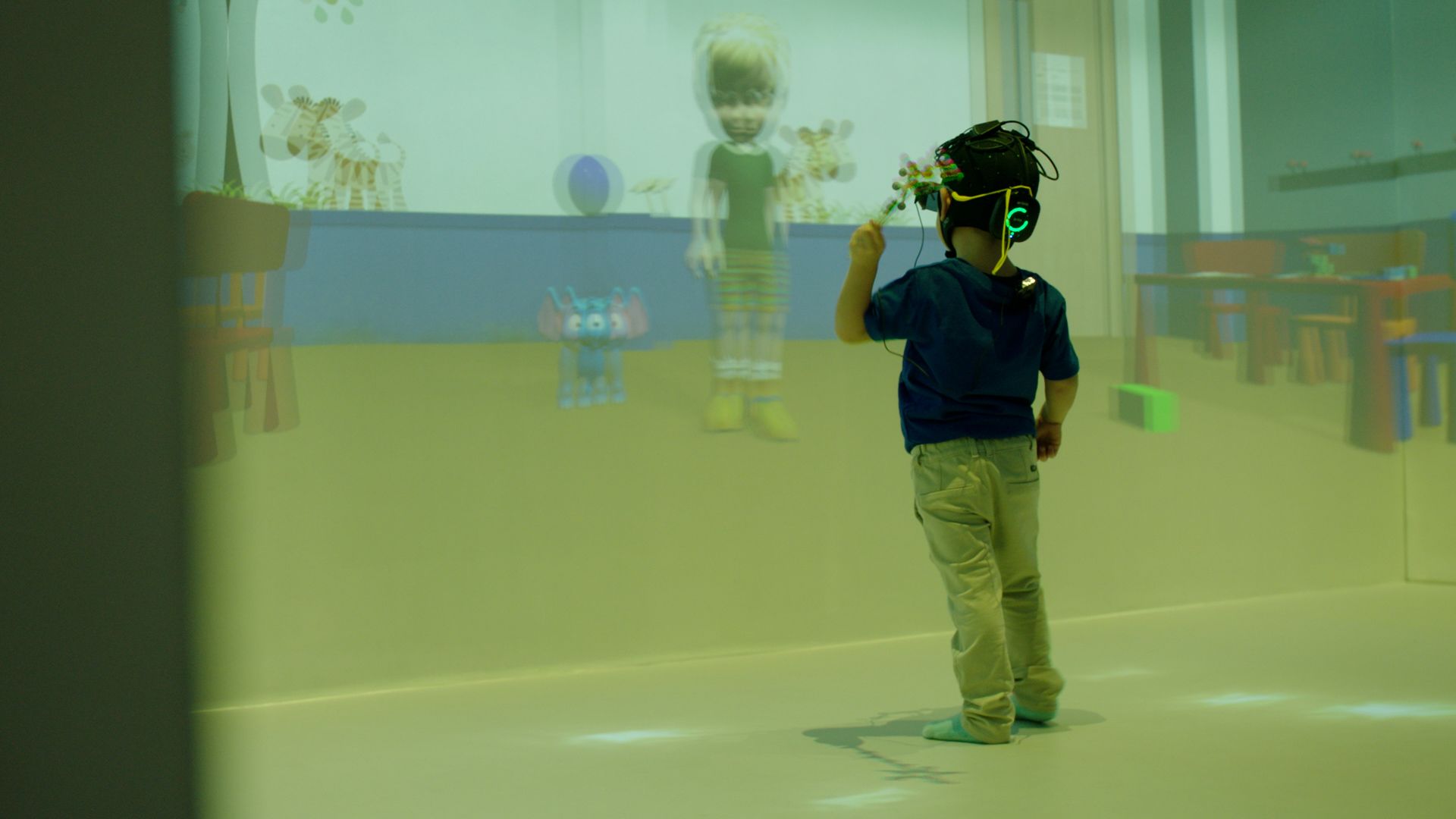
fNIRS is safe and non-invasive.
It simply measures the oxygenation levels of blood in the brain, which tells us how the brain is being used.
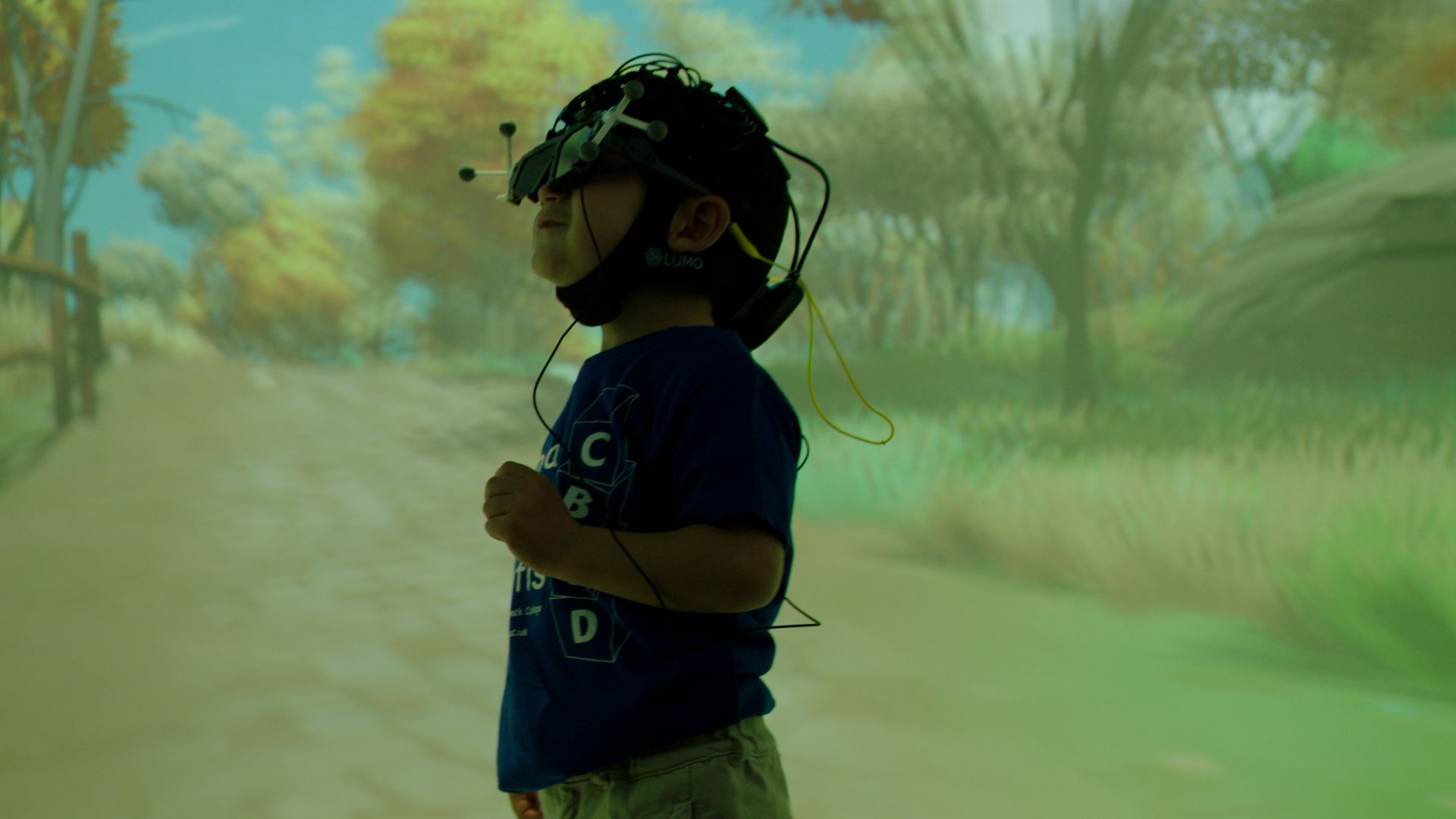
We have just published our first proof-of-principle study in the CAVE, which tested toddlers’ social development by assessing preference to social partners. Toddlers entered a virtual classroom and were asked to choose who they wanted to play a game with from a selection of avatars of different ages and genders.
This study helped us understand who toddlers want to interact with. We found that most of the toddlers, especially females, preferred to play with the same-age and same-gender virtual character.
In the upcoming phase of the Empathy Project, we will use toddler-avatars based on these findings as part our assessment of emotional responses.
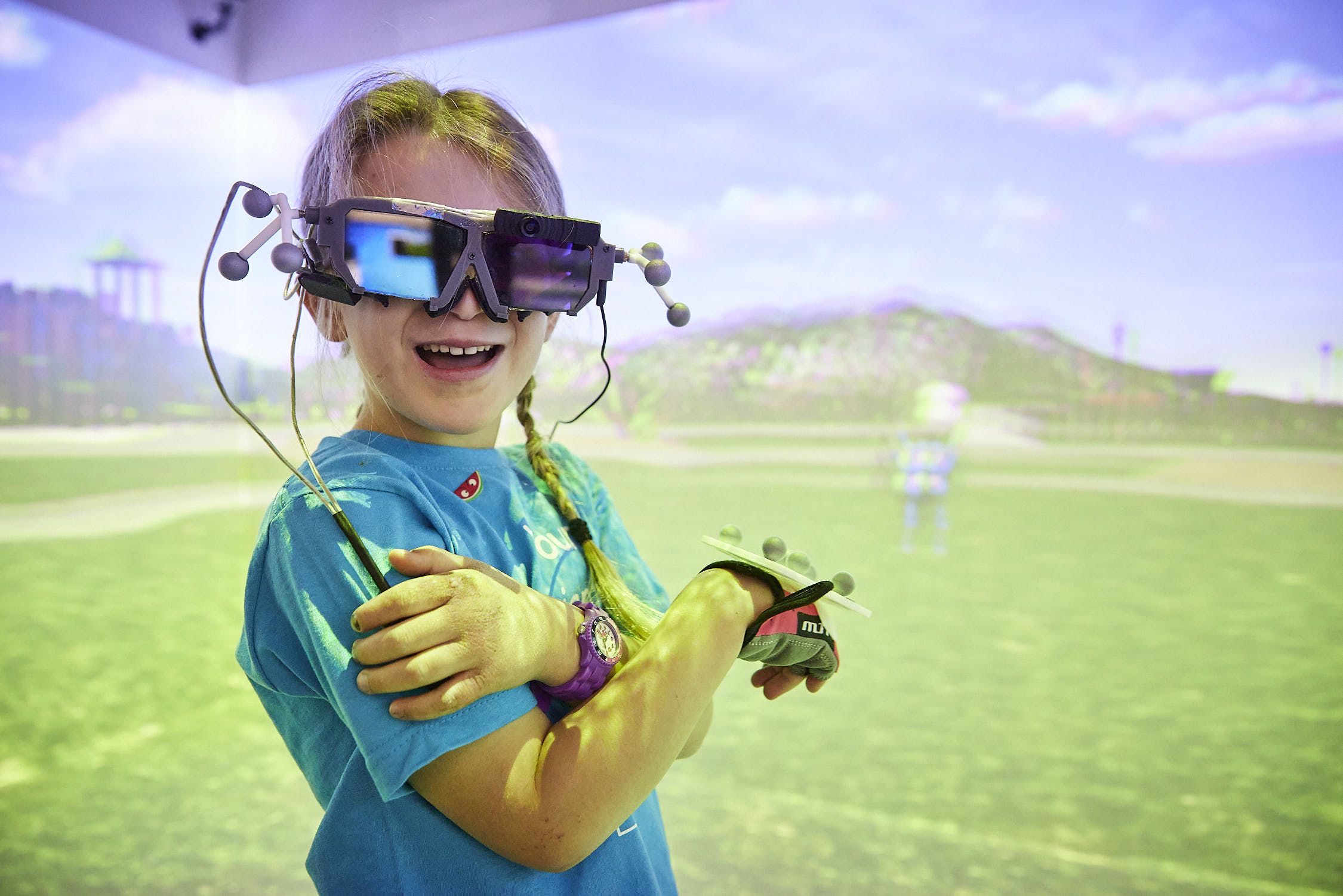
For the next stage of this study, we are looking for 3-5 year olds who are happy to play in the ToddlerLab.
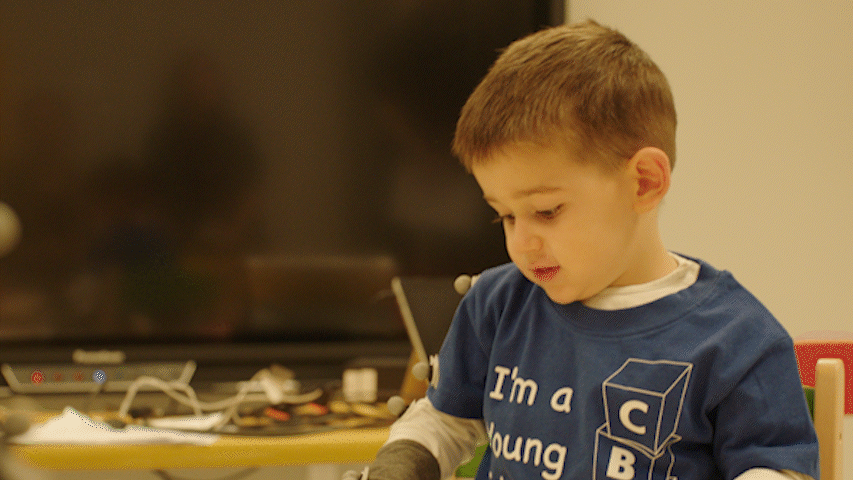
To get involved, email us at babylab@bbk.ac.uk or, if you have further questions, please contact Chiara directly at c.bulgarelli@bbk.ac.uk
If you have children outside of this age range...
The Birkbeck BabyLab and ToddlerLab is always in need of babies from 0-12 months and children through to school age to help us with our research.
Please also get in touch if you have a child with autism spectrum disorder or ADHD. Working with them helps us understand how to make our research set-up more friendly to neurodiverse children.
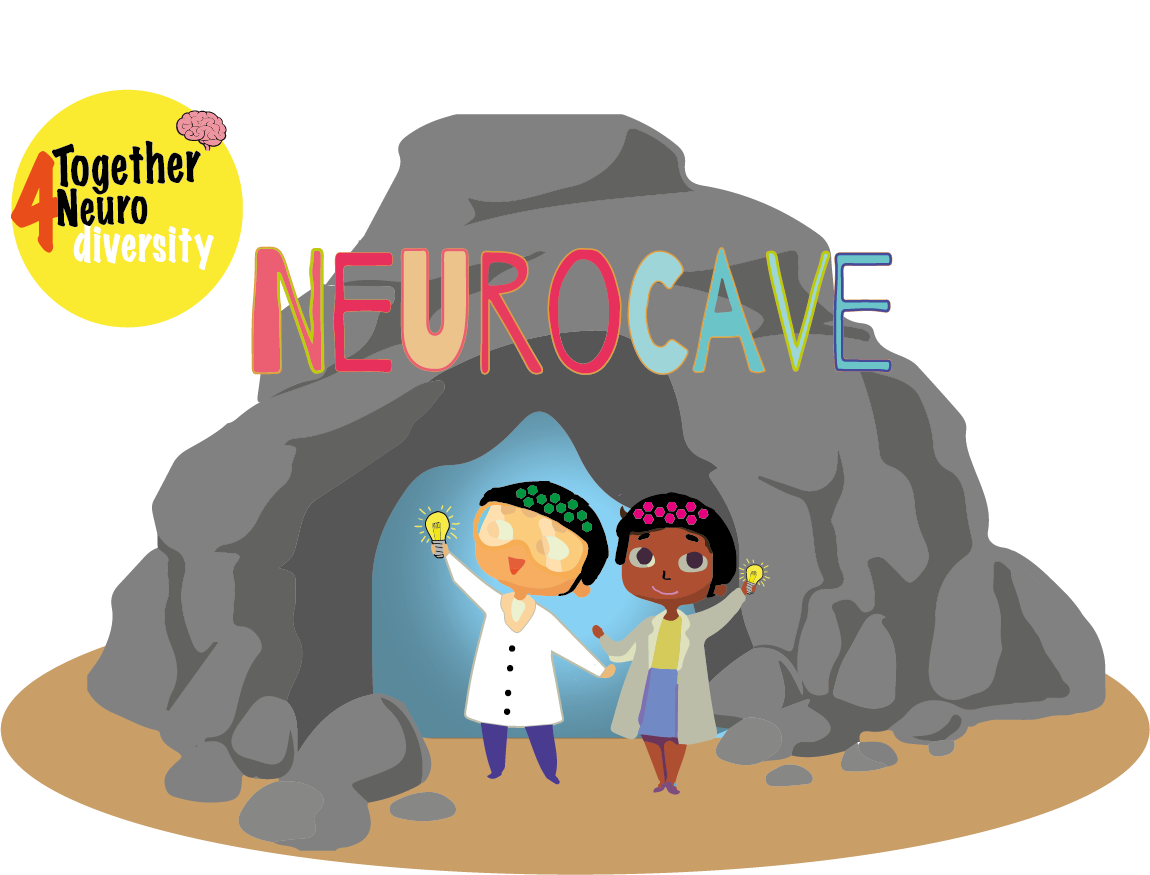
So, if you are interested in participating in a study or learning more about your baby or child’s development, please join our participant database.
Signing up is free and easy and involves no commitment. It simply means we have the ability to contact you when your baby or child matches the age group of one our studies. We will then invite you to take part and hope you say yes!
If you visit our labs we refund your travel costs. All babies and children who visit our labs receive a certificate and thank you gift.
If you have any questions about getting involved in these studies, please contact Dr Chiara Bulgarelli: c.bulgarelli@bbk.ac.uk
You can read more about the work we do at www.cbcd.bbk.ac.uk
